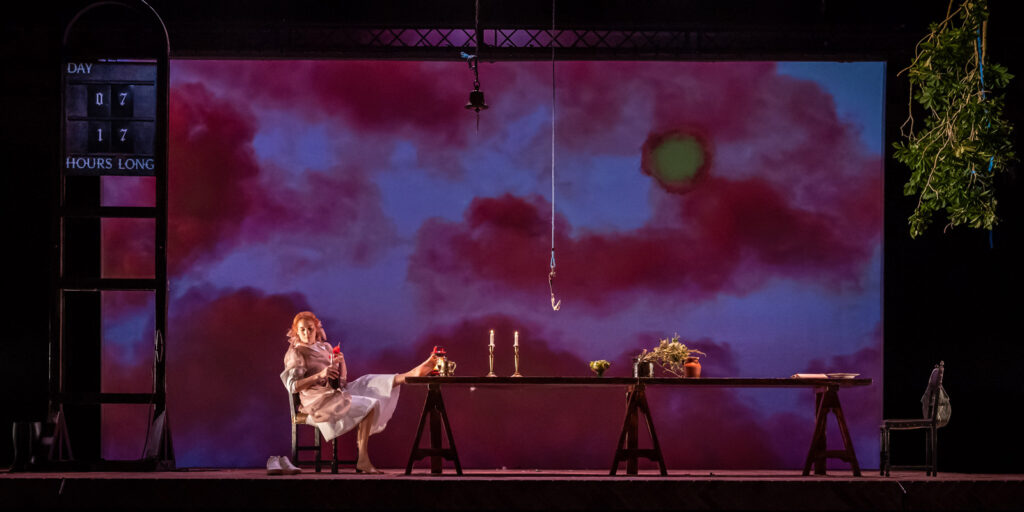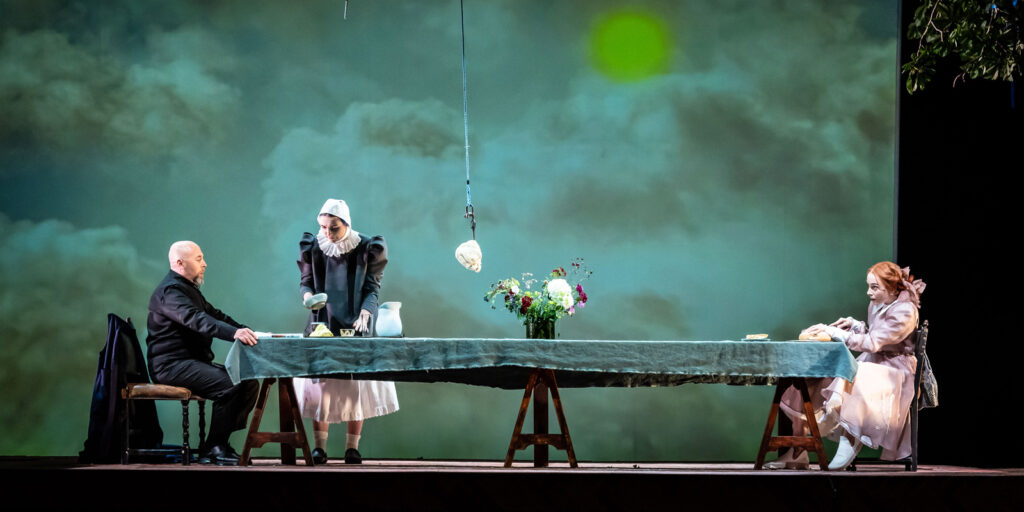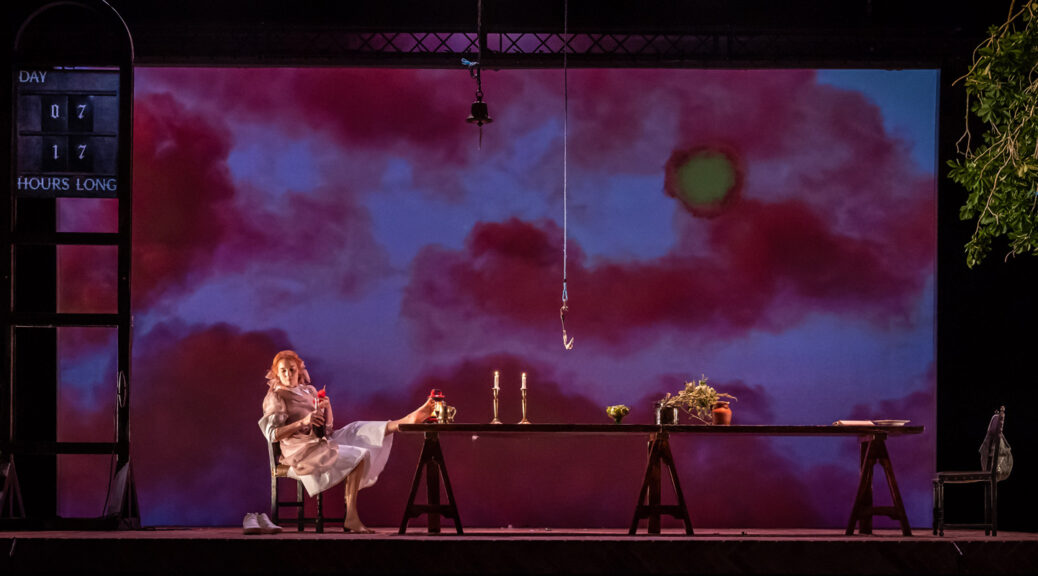
 (4 / 5)
(4 / 5)
What happens when time runs out? Panic, terror, fatalism? Or resignation and even hope that a new beginning will bring better things?
After two years when many of us have felt the sorrow of lost time due to the Covid-19 pandemic, and ironically why this production has been delayed until now, Violet is both a timely and poignant reflection on the meaning of time and the feelings that it engenders.

The work centres around three main characters – Violet (Anna Dennis), a depressed wife who hates the predictability of life in their town. People rise, make bread and open their doors at exactly the same time each day. Nothing even changes, and Violet feels stultified by it. Her husband, Felix (Richard Burkhard) exerts control over Violet, and is disturbed by the changes that he observes in his wife. Their anxious housekeeper Laura (Frances Gregory) carries out her daily routine with an increasing sense of dread and terror.
The action takes place around a table set with incongruous items of food and drink, a still life depicting an unspecified time and place. The characters’ dress does little to ground us either – Felix in modern dress, Laura in period clothing and Violet in an Alice in Wonderland-type outfit, complete with pigtails and bows. Violet is the first to notice that time is – literally – running out. The town loses one hour a day, and this process does not stop until there is no time left. There are no hours left in the day. Felix and Laura collapse into panic and terror, witnessing the destruction of life around them, but depressed Violet is enlivened by events, sensing that a new beginning might just be possible. And at least something different is happening.
Co-produced by Music Theatre Wales and Britten Pears and directed by Jude Christian, it’s a short piece, running to just 85 minutes,. As such, every word and note must earn its place, there is no room for any superfluous material. Alice Birch uses language to great effect here and, coupled with Tom Coult’s haunting and poignant score, the overall effect is of a precarious balancing act between fear and a tiny amount of hope. The soprano of Anna Dennis perfectly captures single words (“Yes”, “No”, “Time”) with alarming disquiet. Richard Burkhard provides a few moments of levity through his well-placed dialogue and voice. Frances Gregory and Andrew MacKenzie Wicks give assured performances as the housekeeper and the clock keeper.
Mention must be made of the London Sinfonietta, conducted by Andrew Gourlay. The 14 players execute the terse score beautifully, and the dexterity of the percussionist in particular, who handles an array of instruments with great aplomb, moving his score around with him, is to be admired. Together with additional electronic sound effects, the sense of time running out is always palpable and very real.
What to make of the ending? Is this a new world, with no humans left? Whatever is happening in this place, time remains central. But it is now marked by a digital clock, and the opera ends with the display ticking round to just after midnight. So is there hope …. after all?


” the opera ends with the display ticking round to just after midnight..” Well-spotted – I missed that!